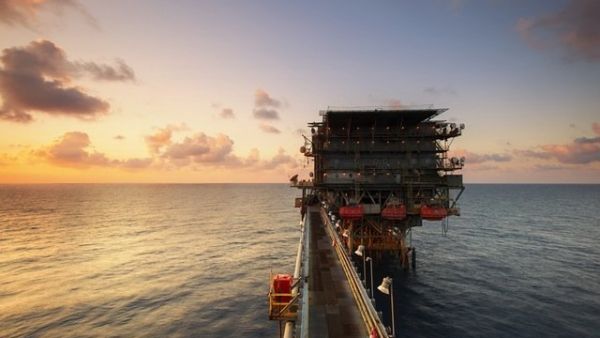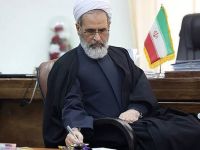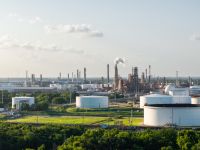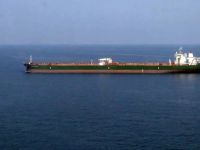The prospects of a large gas find off the Lebanese coast have led to some premature celebrations among political and business circles that hoped this untapped hidden wealth would be the ultimate answer to all of Lebanon’s economic and social problems. Although successive governments have failed to pass two crucial decrees that would herald the launch of the licensing round, many politicians and even oil experts have overestimated the potential size of this commodity in Lebanon and have even matched it with those of Israel and Cyprus.
But a new policy paper prepared by former Economy Minister and leading economist Nasser Saidi stressed that the challenges that Lebanon will face in extracting gas are much bigger and daunting than immediate benefits.
“Lebanon’s prospects as an oil and gas producer are fueling expectations, verging on irrational exuberance, that an energy windfall would jump-start the economy out of its lethargy, increase exports, investment and consumption spending, create new jobs in the energy sector and raise growth rates,” Saidi said.
Saidi added that judging by the initial 3-D seismic survey, Lebanon may have considerable gas reserves.
“How realistic are these expectations and what should be done to effectively manage Lebanon’s prospective energy wealth? A 2010 U.S. Geological Survey report estimated that there were 122 trillion cubic feet (3,455 billion cubic meters) of gas and 1.7 billion barrels of oil off the coasts of Israel, Palestine, Cyprus, Syria and Lebanon.
“Furthermore, a seismological survey in Lebanese waters indicated vast natural gas deposits beneath the seabed, potentially as much as 25 TCF (in Aug 2012) or some 0.36 percent of world gas resources,” the study said.
But Saidi insisted that even these encouraging estimates are not suffice to claim that Lebanon will smoothly extract and export gas in the future without any difficulties.
“Nevertheless, we should recall the old proverb that “there’s many a slip ‘twixt the cup and the lip,” he then added.
Saidi noted that there are four major sources of risk and uncertainty that will face Lebanon when it decides to explore gas.
“The first is price volatility and unsustainability. Oil and gas prices have declined by some 70 percent compared to June 2014 and the prospects of recovery are dim over the medium term. We are in the age of the “New Oil Normal” with plentiful sources of new energy. Shale oil and gas producers have become a marginal source, able to compete at a $45 to $55 barrel price,” Saidi explained.
“Secondly, there is reserves and production uncertainty. Surveys are, at present, the only estimates of prospective resources. Until exploration, drilling, production/extraction begin, we need to maintain realistic, conservative expectations as to the level of recoverable reserves that are technically, economically and legally feasible,” he added.
“Thirdly, there is geopolitical and legal risk. Lebanon’s oil and gas wealth is offshore which, in the absence of a maritime border agreement between Lebanon, Cyprus, Israel and Syria, involves significant legal uncertainty,” the paper noted.
“Fourthly, there is domestic political risk. Lebanon’s dysfunctional politics and dismal governance are likely to pose insuperable obstacles to sound, transparent and sustainable management of its natural resource wealth,” he added.
He also feared that the potential gas wealth could further consolidate the long-running corruption culture.
“Lebanon’s oil and gas windfall is likely to lead to more corruption and seizing of wealth by special interest groups and politicians to the detriment of national interest. As Lebanon’s political struggles persist, it is imperative to establish a sound fiscal regime and a robust governance framework ensuring transparency in the exploitation of Lebanon’s scarce oil and gas wealth,” Saidi recommended.








